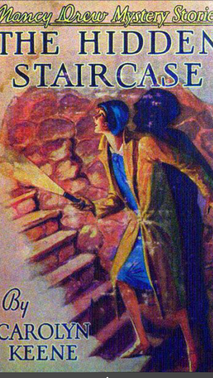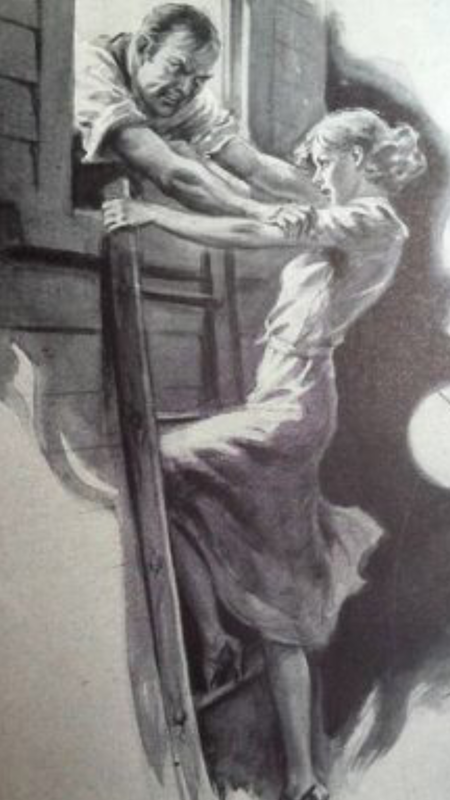
I was asked by a woman attending a reading I did recently how I came to choose detective fiction as my chosen genre. When I hear a question like that my mind tumbles down through my years of reading to near the beginning, my Nancy Drew phase.
The Nancy Drew mysteries I read came out of the 30s’ and 40s’ when Nancy was portrayed as confident and bold. I admired her relationship with her father because she came across almost as his colleague. It mirrored my chummy relationship with my own father, and because of my rather fraught relationship with my powerful mother, it suited me perfectly that Nancy’s mother had long since died and provided no impediment to her peace of mind.
No one, in my recollection, was trying to make Nancy marry Ned, or tone it down and she never seemed to be afraid of anything. I aspired to be unafraid, and I loved Nancy for that. Certainly there was very little modeling for hesitation and fearfulness, or even good sense and natural caution, in my house. Nancy Drew was a girl that culturally I could relate to, and whose bravery I could aspire to. And in spite of my adolescent misgivings about my mother, I can see now that she was the very model of what Nancy Drew would surely grow up to be.
After I had run through all the Nancy Drews I could find, I turned to the Hardy Boys, which, as I child I assumed had come along later so that boys would have some wonderful strong characters to read about. (Of course, it was the other way around: she came along in 1930 to attract the female reader.) I wasn’t very impressed. The adventures were fine, I’m sure, but they lacked this shining central character, who always appeared in illustrations in some dangerous place at night, armed with nothing but a flashlight, and wearing a lovely dress and those high-heeled, laced or strapped shoes of women of the period. I still love the look of those shoes!
It’s probably a mistake not to be afraid of things. I remember the first time I wondered if I ought to be afraid. I was 20 years old and in a situation in a Balkan country in which I had placed myself far from help and with no notion of how the men around me might behave. Fear and caution are natural human emotions that it is prudent to have to hand, but I was disheartened to learn that beginning in the 1950s, under some social pressure I assume, Nancy Drew was made less bold, less back-chatty, more feminine in giving way to fear and her father’s expectations. It’s probably realistic to assume that someone pursuing a clue in a mineshaft at night on her own OUGHT to be afraid, but I loved it that that in those early books, she didn’t seem to be.
I have said from time to time that Lane Winslow is Nancy Drew for grown ups. I don’t mean to diminish either character with this. Lane reflects the mad crazy fearlessness of my own mother as I knew her. And here’s what I learned about my mother late in her life: she WAS afraid of things and her response was to suit up and go confront them directly. (Exhibit A: a photo I have of my mother at the age of 75 dressed in full fire-fighter’s gear after she and her colleagues at the local volunteer fire department have conducted a practice in an actual burning house. She was absolutely terrified of fire.)
Even though I love mysteries that, as Dame PD James said, are good novels, and have wonderful conflicted central male characters like Lord Peter, Dalgleish, Poirot and so on, when I began to write, I never considered for a minute that a man would hold the central spot. How could I with Nancy and my mother keeping a keen and supervisory eye on my output?
